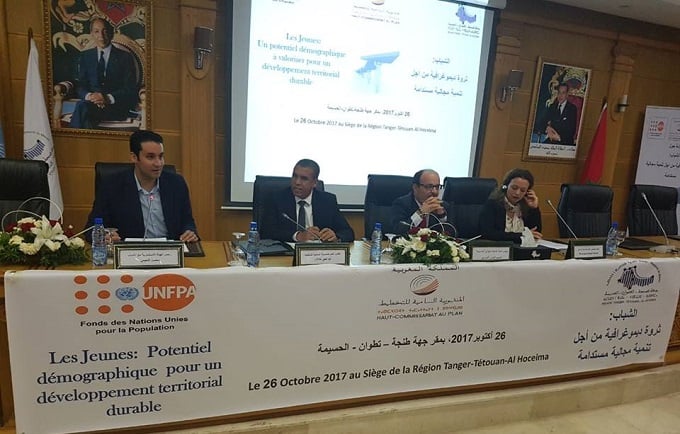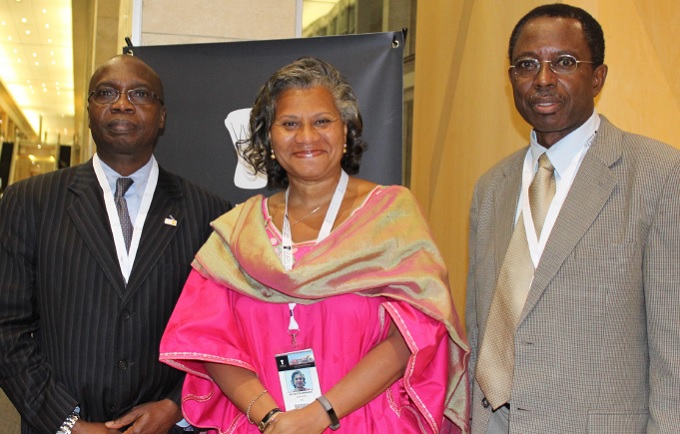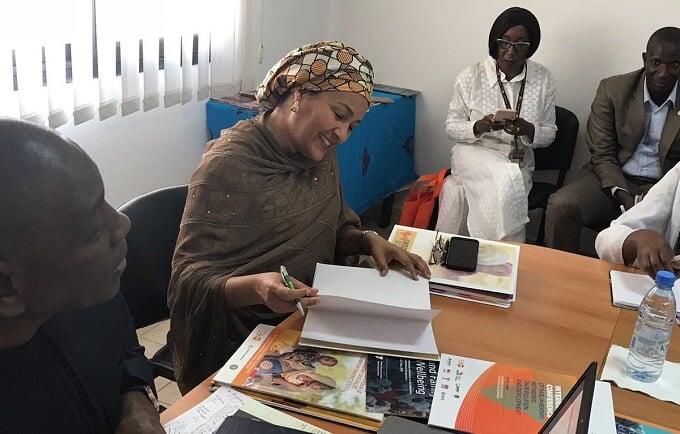In October, across Africa and beyond, there was action on the implementation on the 2017 AU theme “Harnessing the Demographic Dividend through Investments in Youth”. These are some of the highlights from Ethiopia, Belgium, Nigeria, USA, Ivory Coast and Morocco:
From 3-6 October, in Addis Ababa, ECA’s Social Development Policy Division hosted a workshop on “Policy Options for Youth in Africa” to strengthen youth policies and programmes, enhance research evidence and increase coherence among strategic actors addressing Africa’s youth. At the event, experts and youth representatives from over 10 African countries discussed the demographic dividend in Africa as the entry point to implementing and monitoring the Addis Ababa Declaration on Population and Development (AADPD), the pros and cons of existing national youth policies and the development of a youth policy toolbox to ensure effective school-to-work-transition for young people with disabilities, entrepreneurs, those that have dropped out from school, those in Technical, Vocation Education and Training with a view to ensuring gender equality. UNFPA Liaison to the African Union and Economic Commission for Africa (UNFPA ELO) shared experiences with participants on the process leading up to the 2017 African Union Theme on "Harnessing the Demographic Dividend through Investments in Youth" and opportunities for follow-up at country level.
On 5 October, in Brussels, at the margins of the Rebranding Africa Forum, UNFPA in collaboration with the World Bank, GBCHealth, and the African Youth and Adolescent Network (AfriYAN), hosted a dialogue between youth organisations, parliamentarians, the private sector and media investment opportunities for harnessing the demographic dividend in Africa. The UNFPA delegation, was led by Dr. Natalia Kanem. UNFPA Executive Director, and supported by Mr. Mabingue Ngom, UNFPA Regional Direcor for West and Central Africa. Among many issues, stakeholders at the meeting laid the foundation for thinking on the sustainability of existing initiatives such as Sahel Women Empowerment and Demographic Dividend (SWEDD) Project by scaling up them at national and continental levels.
On 13 October, in Abuja, UNFPA Nigeria organized the live event "Put Young People First: Game-changing ideas to empower marginalized young people". The event counted with the participation of Dr. Natalia Kanem, who was in Nigeria for her first official visit as UNFPA Executive Director, and young activists, entrepreneurs, and influencers to share their ‘big ideas' for the employment, education and empowerment of Nigeria's youth to a key audience — other young people around the world. Dr. Kanem said "The young people of Nigeria will be the ones who can end poverty, educate everyone and make sure that health is expressed as a universal right" and "We [UNFPA] will protect you, we will support you, we will do our best to ensure your vision becomes a reality."

From 16-20 October, in New York, the Office of the Special Adviser for Africa (OSAA) co-hosted in collaboration with the African Union Commission (AUC), ECA, NEPAD Agency, the African Peer-Review Mechanism Secretariat, Member States and other partners, the UN Africa Week under the theme "Supporting an Integrated, Prosperous, People-centered, Peaceful Africa: Towards the Implementation of Agenda 2063 and the 2030 Agenda for Sustainable Development". Critical areas to harness the demographic dividend were discussed including the impact of the regional economic integration in Africa and how to effectively involve Africa’s youth across national borders, which included the participation of UNFPA. Other relevant topics discussed were the need for sound public health delivery system to support Africa’s industrialization and the nexus between climate change and migration and its implication in peace and security.
On 18 October, in Abidjan, the First Ladies of West Africa and the Sahel, gathered in Abidjan at the invitation of the H.E. Ms. Dominique Ouattara, First Lady of Côte d’Ivoire, to launch the Regional Campaign for Social and Behavioral Change Communication for the Sahel Women Empowerment and Demographic Dividend (SWEDD) Initiative. The event organized with support from UNFPA WCARO and partners resulted in a signed Joint Declaration of commitment by the First Ladies of SWEDD which was read by H.E. Ms. Lala Malika Issoufou, First Lady of Niger. In addition, communicators and journalists from Africa set up the Ad hoc Committee of the African Network on Demographic Dividend. SWEDD project ministers, parliamentarians, women’s and youth associations, media from the SWEDD member countries participated. The UNFPA Regional Director for West and Central Africa took an active role in leading a high-level UNFPA delegation. The World Bank and WAHO were represented at the highest level. The Abidjan meeting allowed member countries to present the results and lessons learned from the national launches.
On 26 October, in Tangiers, UNFPA Morocco, the Council of Tangier - Tetouan - Al Hoceima (CRTTA) and Le Haut Commissariat au Plan (HPC) de Maroc co-hosted an event entitled "Youth: a demographic potential to be used for a sustainable territorial development". The initiative aimed to raise awareness and mobilize stakeholders to engage and invest in youth and benefit from the wealth that Moroccan youth can bring to the implementation of sustainable development plans.

From 29 October to 4 November, in Cape Town, Statistics South Africa and the International Union for the Scientific Study of Population (IUSSP) hosted the 28th International Population Conference (ICP) – for the first time in sub-Saharan Africa. The conference addressed many themes relevant to harnessing the demographic divided in Africa including migration and urbanization, gender and population, population and human rights, sexuality and reproductive health, ageing, children and youth. Dr. Natalia Kanem, UNFPA Executive Director, sent a special message of support highlighting the significance of hosting the IPC in Africa in a year when political leaders and the development community have joined efforts to support the implementation of the 2017 AU theme on harnessing the demographic dividend and called for investments in scientific evidence and knowledge to ensure inclusive growth and sustainable development. The UNFPA delegation, co-led by Dr. Julitta Onabanjo, UNFPA Regional Director for East and Southern Africa, and Dr. Benoit Kalasa, UNFPA Technical Division Director, beyond showcasing UNFPA’s thought leadership and research publications on population and development, ensured alignment with sustainable development goals of Agenda 2030 and Agenda 2063: The Africa We Want with the data population field.




